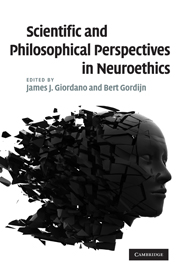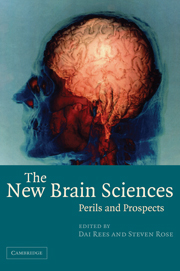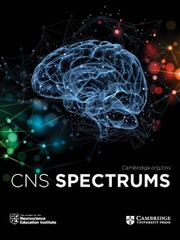Scientific and Philosophical Perspectives in Neuroethics
While neuroscience has provided insights into the structure and function of nervous systems, hard questions remain about the nature of consciousness, mind, and self. Perhaps the most difficult questions involve the meaning of neuroscientific information, and how to pursue and utilize neuroscientific knowledge in ways that are consistent with some construal of social 'good'. Written for researchers and graduate students in neuroscience and bioethics, Scientific and Philosophical Perspectives in Neuroethics explores important developments in neuroscience and neurotechnology, and addresses the philosophical, ethical, and social issues and problems that such advancements generate. It examines three core questions. First, what is the scope and direction of neuroscientific inquiry? Second, how has progress to date affected scientific and philosophical ideas, and finally, what ethical issues and problems does this progress and knowledge incur, both now and in the future?
- Brings together noted scholars from diverse disciplines making this a title relevant for all in the field of Neuroscience, Bioethics, Medical ethics and Philosophy
- Explores the full range of philosophical,ethical and social issues raised by neuroscientific research
- Advanced philosophy and neuroscience, give the reader an understanding of the current state of play in the sciences and philosophical debates
Reviews & endorsements
"The task for neuroethics, so well captured in this volume, is how to bridge the gap between mind and brain while acknowledging that this chasm cannot, and perhaps should not, be filled."
Amir Raz, PsycCritiques
Product details
March 2010Hardback
9780521878555
418 pages
235 × 158 × 23 mm
0.79kg
16 b/w illus. 5 tables
Available
Table of Contents
- Foreword Neil Levy
- Introduction James J. Giordano
- 1. Developments in neuroscience: where have we been, where are we going? D. F. Swaab
- 2. Origins of the modern concept of neuroscience: Wilhelm Wundt, empiricism, and idealism - implications for contemporary neuroethics Niko Kohls and Roland Benedikter
- 3. On the cusp: the hard problem of neuroscience and its practical implications Ralph D. Ellis
- 4. The mind-body issue Dieter Birnbacher
- 5. Personal identity and the nature of the self Paolo Costa
- 6. Religious issues and the question of moral autonomy Antonio Autiero and Lucia Galvagni
- 7. Toward a cognitive neurobiology of the moral virtues Paul M. Churchland
- 8. From a neurophilosophy of pain, to a neuroethics of pain care James J. Giordano
- 9. Transplantation and xenotransplantation: ethics of cell therapy in the brain revisited Gerard J. Boer
- 10. Neurogenetics and ethics: how scientific frameworks can better inform ethics Kevin FitzGerald and Rachel Wurzman
- 11. Neuroimaging: thinking in pictures John VanMeter
- 12. Can we read minds? Ethical challenges and responsibilities in the use of neuroimaging research Eric Racine, Emily Bell and Judy Illes
- 13. Possibilities, limits, and implications of brain-computer interfacing technologies Thilo Hinterberger
- 14. Neural engineering: the ethical challenges ahead Bert Gordijn and Alena M. Buyx
- 15. Neurotechnology as a public good: probity, policy, and how to get there from here Alexis M. Jeannotte, Kathryn N. Schiller, Leah M. Reeves, Evan G. DeRenzo and Dennis K. McBride
- 16. Globalization - pluralist concerns and contexts: shaping international policy in neuroethics Robert H. Blank
- 17. The human condition and strivings to flourish: treatments, enhancements, science and society Adriana Gini and James J. Giordano
- 18. The limits of neurotalk Matthew B. Crawford
- Afterword Walter Glannon
- Index.









